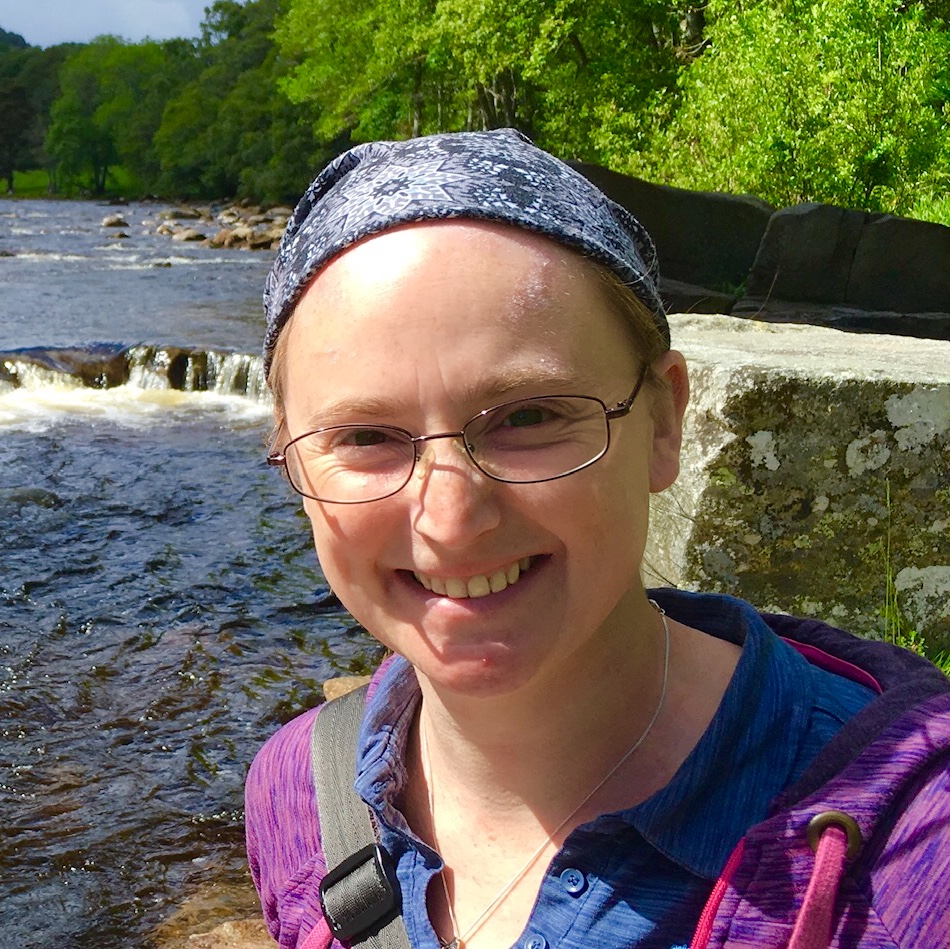
Dr. Megan Argo is a Lecturer in Astronomy at the University of Central Lancashire and a Vice President of the Royal Astronomical Society. After studying at the University of Manchester, she worked in Western Australia and the Netherlands, before returning to the UK in 2013. She has been lucky enough to observe with some of the best radio telescopes around the world, in Europe, India, the USA and Australia. Her passion for sharing the wonders of the universe with children of all ages has taken her from northern Scotland to outback Western Australia, via rural India, the mountains of Columbia, and cosmopolitan South Africa. You can follow her on twitter at @Astromeg.
Do you consider astronomy adventurous? If so, in what sense?
Absolutely! The drive to explore is part of human nature, and astronomy is one way we can do that. In the same way that it is natural to want to know what is beyond the next ridge, astronomy is about the adventure of finding what is hidden in the distant Universe. Astronomy is essentially the exploration and study of the entire Universe but, because the distances are so large, it has to be exploration at a distance. As a professional astronomer, it is quite a thrill to take an image of a distant bit of the Universe and know that you are the first person to ever see that particular galaxy, supernova or black hole!
'In the same way that it is natural to want to know what is beyond the next ridge, astronomy is about the adventure of finding what is hidden in the distant Universe.'
The Lovell telescope at Jodrell Bank, in Cheshire, where Megan studied her PhD

Why do you think astronomy is important?
As long as humans have existed, they have looked up at the sky and wondered about the nature of the stars. As science has progressed, we have been able to turn more and more sophisticated telescopes to the sky and learn more about the stars and galaxies we observe. Astronomy has been fundamental in developing our understanding of the laws of physics, without which the modern world would not exist. Since light takes time to reach us from distant galaxies, we are also exploring the history of the Universe as we look out into space, so astronomy can tell us how our Galaxy, our Solar System, our planet, came to be the way they are today. So, as well as improving our scientific understanding, astronomy helps us answer those Big Questions like “why are we here?”
Do you think there is a danger that astronomy could contribute to negative ends?
Seeing further into space requires bigger and bigger telescopes, and those telescopes need to be situated in remote places away from light pollution. The ideal location for a large telescope is on top of a high mountain, above as much of the atmosphere (and clouds!) as possible. This can lead to tensions, especially when the rights of indigenous land owners are not taken into account, but astronomy is learning how to do this better.
Arguably the best place for a telescope is above the atmosphere entirely, and with many companies launching satellite megaconstallations to provide global wifi, space may soon be the only place from which we can observe the cosmos without interference. (I wrote a piece about this recently.)
A campfire at Boolardy station, Western Australia, during a cultural exchange between astronomers and indigenous artists in 2009 (left) and star trails over the Stirling Range in Washington State (right)


Are there core 'big questions' or themes currently driving astronomical research?
There are several big questions in astronomy. In my own field of radio astronomy, the big questions that we are hoping to answer with the next big telescope (the Square Kilometre Array, under construction in both South Africa and Western Australia) are: What is driving the acceleration of the expansion of the universe? Was Einstein right about gravity? How were the first black holes and stars formed in the early Universe? Are we alone?
Is there anything particularly fascinating and/or important you’ve learned through astronomy that you wish more people knew?
In the same way that more people are now realising that we share this planet, we all share the same sky - the same Moon looks down on all of us. With most of the population living in cities where high levels of lighting mean we cannot see the stars, I think we have lost something important. I wish more people were able to see the beauty of the Milky Way from their homes, and were able to explore some of the Universe for themselves and feel that sense of adventure.
If you could travel 100 years into the future, what advances in astronomy/space exploration do you hope and think you’d see?
We are certain to discover more exoplanets, and we may find evidence of past life on Mars or under the ice of Enceladus. However, the history of astronomy shows that every time we build a bigger telescope that can see further than before, we find new questions that we didn’t know were there to be asked - the most exciting discoveries of the next 100 years are likely to be of things we don’t yet know are there to be discovered!
'The most exciting discoveries of the next 100 years are likely to be of things we don’t yet know are there to be discovered!'
Where can people new to astronomy learn more about the Royal Astronomical Society and astronomy generally?
You can find out more about the Royal Astronomical Society at our website, but the best way to get involved is to visit or join your local astronomical society - often these groups invite experts to give talks on their research, and hold regular observing events where you can see interesting objects through a variety of telescopes.







